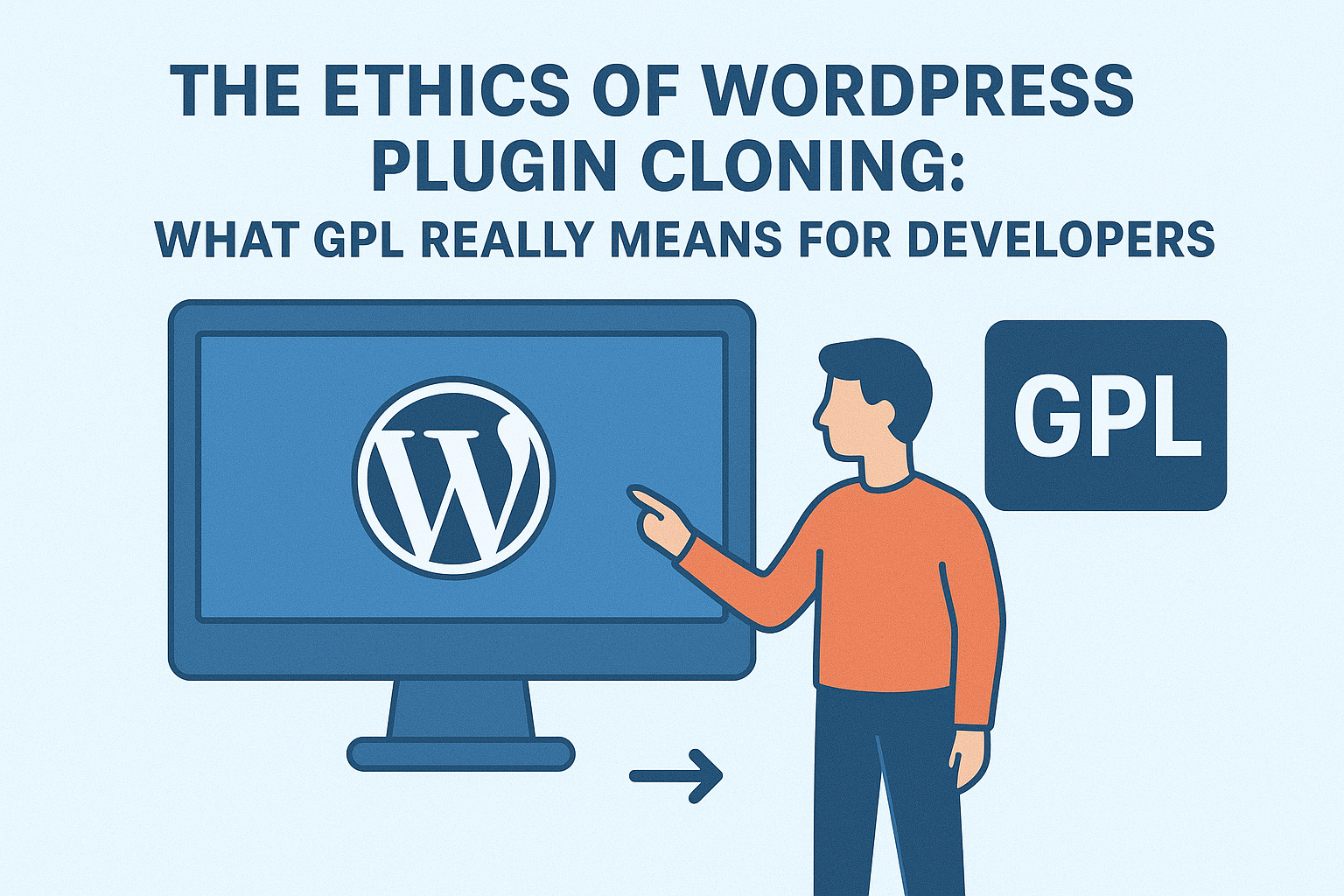The Ethics of WordPress Plugin Cloning: What GPL Really Means for Developers
Introduction
WordPress is built on open-source principles, which means that anyone can use, modify, and redistribute its code. But what happens when developers take a plugin, rebrand it, and sell it as their own? Is it ethical — or even legal? In this article, we’ll explore the ethics of WordPress plugin cloning and clarify what the GNU General Public License (GPL) really allows.
⚖️ What the GPL Actually Says
Every plugin in the WordPress.org repository is licensed under the GPL. This license grants four key freedoms:
- The freedom to run the program for any purpose.
- The freedom to study how the program works and change it.
- The freedom to redistribute copies.
- The freedom to distribute modified versions.
In short — yes, cloning or forking a plugin is perfectly legal under the GPL, as long as you also keep it open-source and preserve the license.
🚫 Legal ≠ Ethical
While cloning may be allowed, it’s not always ethical. Many developers spend years building and supporting their plugins. Copying their work, changing the logo, and reselling it without credit is considered bad practice and harmful to the WordPress community.
The difference between legal cloning and ethical contribution lies in intent:
- Ethical cloning: Forking a plugin to improve it, fix bugs, or add missing features.
- Unethical cloning: Rebranding or reselling the same code with no added value.
🔍 Examples from the Real World
Over the years, the WordPress ecosystem has seen many clones — some successful, others controversial. A few notable examples include forks of caching plugins, page builders, and SEO tools. Some of these projects added real value and were embraced by the community; others were called out as unethical copies.
For example, the popular plugin Elementor inspired many forks and add-ons — but the successful ones focused on extensions and integrations, not duplication.
💡 When Cloning Becomes Innovation
Cloning isn’t always bad. Many successful projects began as forks that evolved into something new. What matters is whether you bring innovation and value to the ecosystem. For instance:
- Improving user experience or accessibility.
- Fixing long-standing performance issues.
- Integrating with modern technologies (like AI or APIs).
These types of forks often lead to healthy competition and better products — exactly what open-source is meant to encourage.
🧠 Best Practices for Ethical Plugin Forking
If you plan to fork or clone a WordPress plugin, follow these guidelines to stay within both legal and ethical boundaries:
- Always respect the GPL license and keep your fork open-source.
- Credit the original author and explain your modifications.
- Add unique value — don’t just rebrand or resell.
- Use a new, original name and branding to avoid confusion.
- Be transparent with users about the origin of the code.
🗣️ Community Perspective
The WordPress community values collaboration and transparency. Developers who fork responsibly are often respected — those who exploit others’ work without acknowledgment are not. As WordPress’s philosophy states, “The freedom to fork does not mean the freedom to exploit.”
🎯 Conclusion
The GPL makes cloning legal, but ethics define whether it’s acceptable. If you’re going to fork a plugin, do it to improve the ecosystem — not to take advantage of it. When in doubt, reach out to the original author or contribute directly to their project.
Want to explore more open-source development insights? Visit Plugintify.com for weekly WordPress business and developer tips.




